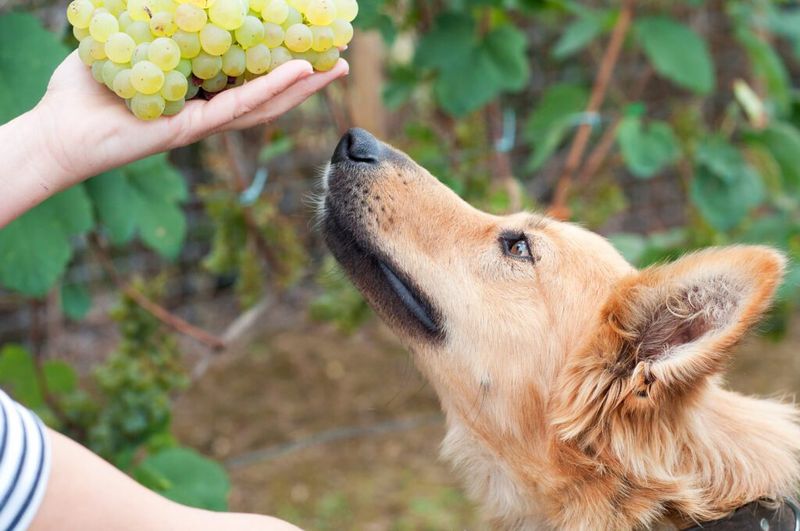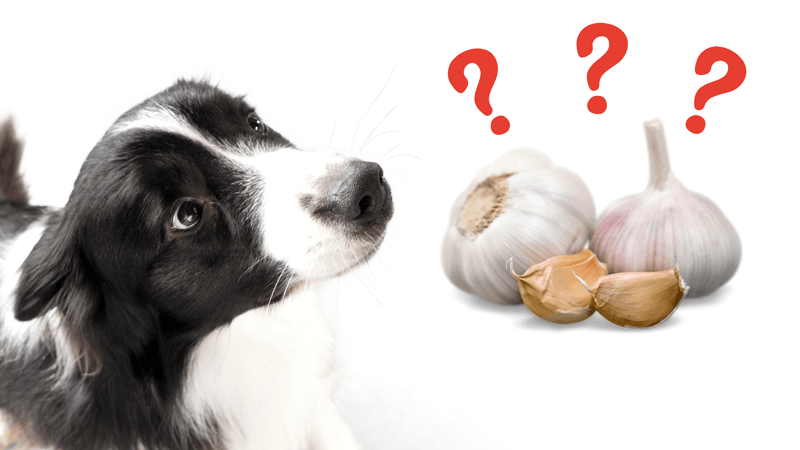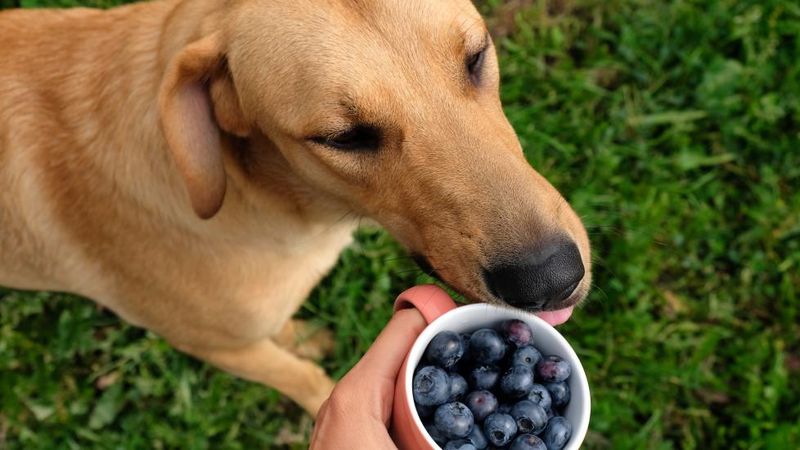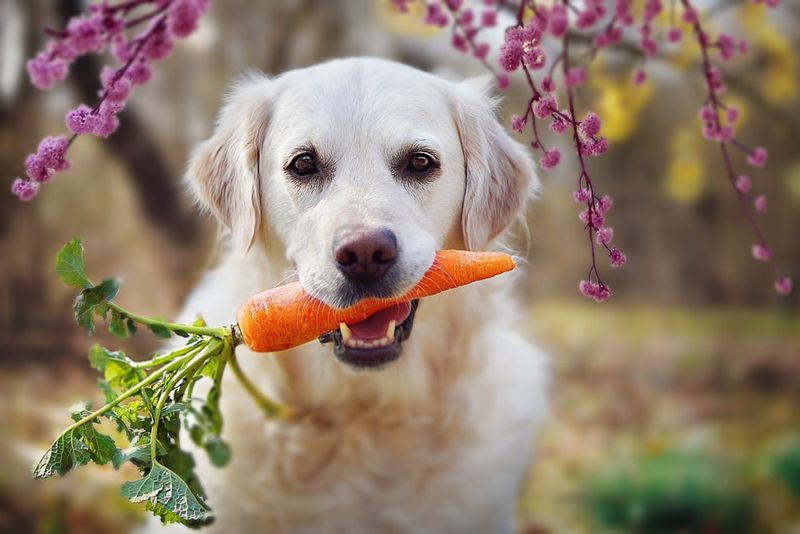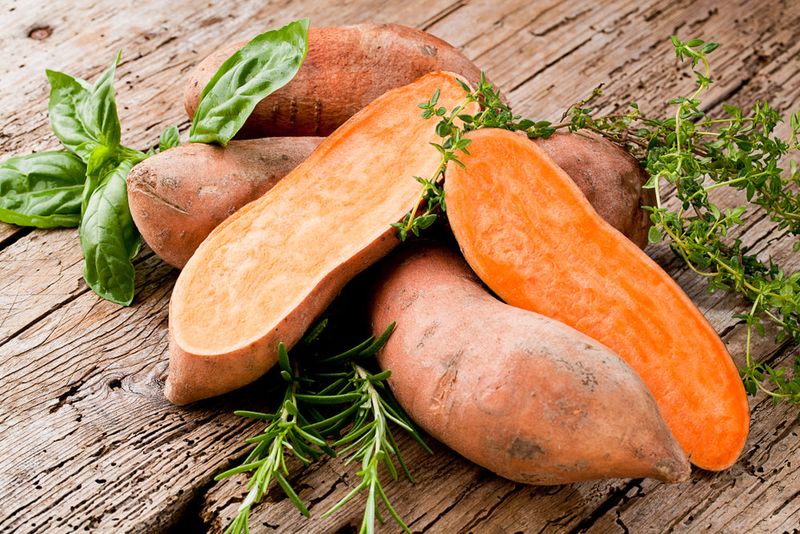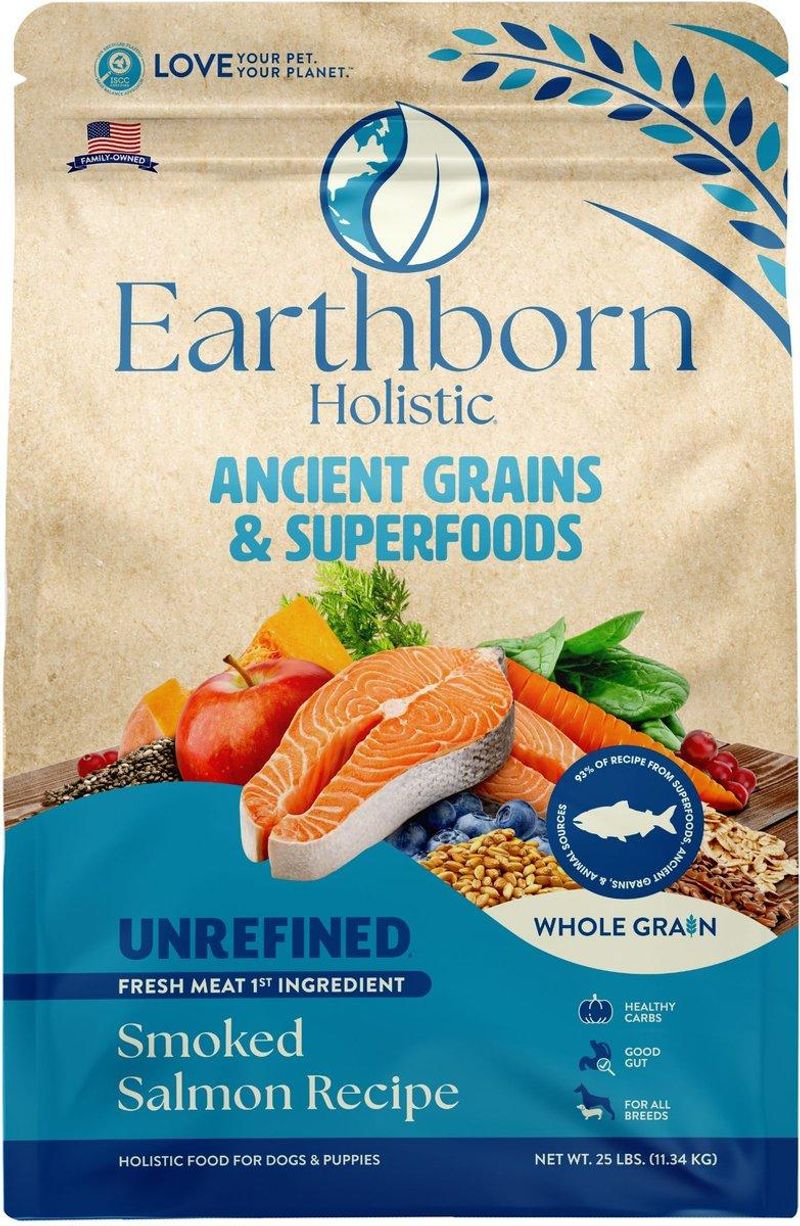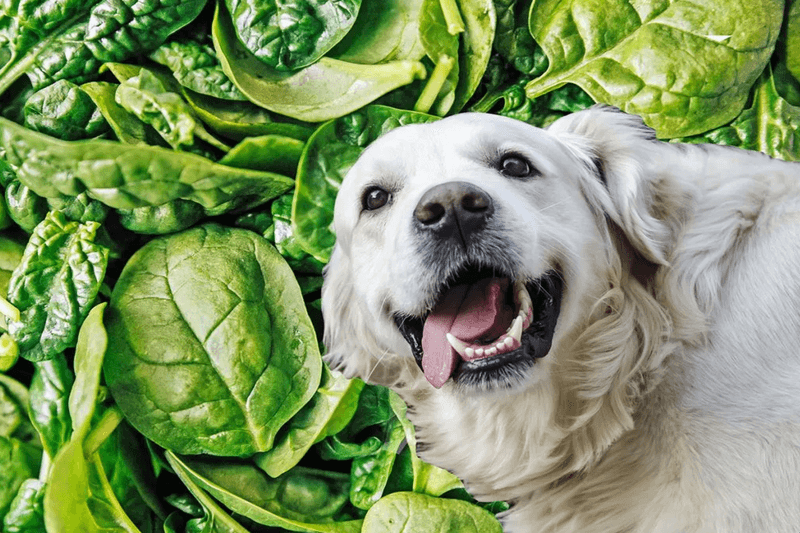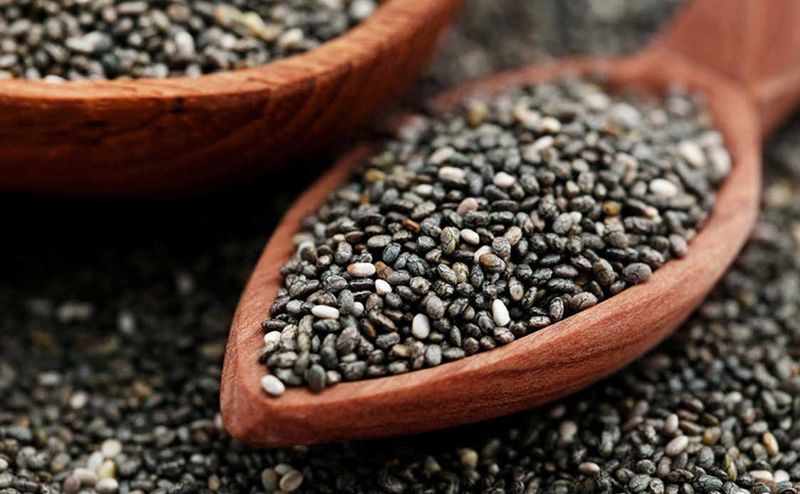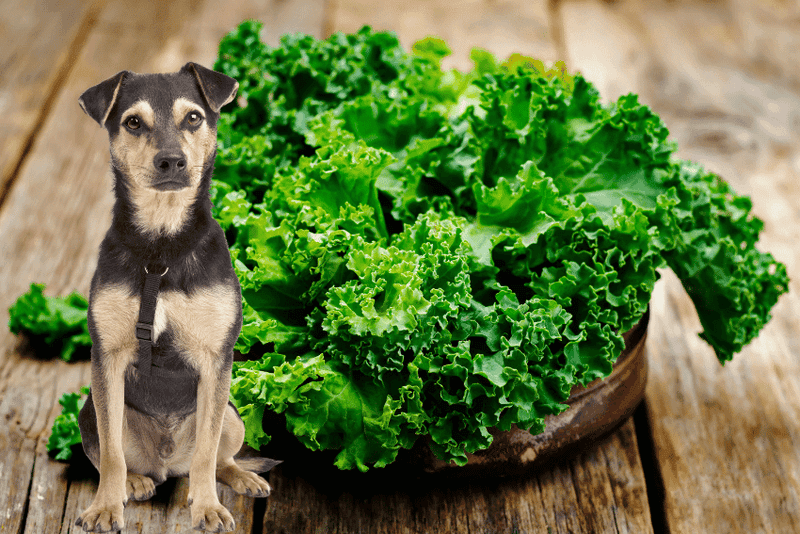When it comes to feeding our furry friends, it’s crucial to know which foods are beneficial and which ones might be best left off their menu. While dogs may seem eager to try anything you’re having, not all human foods are suitable for them. In this article, we’ll explore eight common foods that do little for your dog’s health and contrast them with eight superfoods that can offer a natural boost to your pet’s wellbeing. This guide aims to help you make better dietary choices for your beloved pet.
Grapes
Grapes might seem like a harmless snack, but for dogs, they can be dangerously toxic. This fruit has been linked to kidney failure in our canine companions, although the exact reason remains a mystery. Even a small amount can cause harm. If you ever suspect your dog has ingested grapes or raisins, immediate veterinary assistance is crucial. It’s fascinating how what seems like an innocent fruit can pose such a significant risk to dogs. Ensure to educate family and friends about keeping grapes out of your pet’s reach.
Onions
Onions, whether raw, cooked, or in powdered form, are hazardous to dogs. They contain compounds that can damage canine red blood cells, leading to anemia. Symptoms may include lethargy or pale gums. What’s intriguing is how this common kitchen staple can bring about such adverse effects in dogs. Always check food labels and keep dishes containing onions out of reach. If you suspect onion ingestion, consult your vet immediately. This ensures your furry friend stays healthy and out of harm’s way.
Garlic
Garlic, often praised for its health benefits in humans, poses risks for dogs. It contains thiosulfate, which can lead to anemia by damaging red blood cells. Even small amounts can cause distress. It’s remarkable how a seasoning we consider beneficial can be the opposite for our pets. Be cautious with foods seasoned with garlic and ensure they’re not accessible to your dog. If ingested, observe your pet closely and seek veterinary advice if necessary. This keeps your furry companion safe and healthy.
Avocado
Avocados are adored by many for their creamy texture, but for dogs, they can be problematic. Containing persin, a fungicidal toxin, avocados can cause vomiting and diarrhea in dogs. It is surprising how a fruit celebrated by health enthusiasts can upset a dog’s stomach so severely. Always ensure avocados are kept out of reach from curious noses. If you suspect your pet has eaten avocado, monitor them for any unusual signs and contact your vet if needed. This precaution helps prevent health issues.
Chocolate
To many, chocolate is a sweet treat, but for dogs, it’s anything but. Theobromine, an ingredient found in chocolate, is highly toxic to dogs, leading to symptoms like increased heart rate and seizures. The darker the chocolate, the more dangerous it becomes. Even a small square can pose a serious health risk. It’s peculiar that something humans savor can be so harmful to pets. Always ensure chocolate is stored securely, away from curious paws. If consumed, a vet visit is imperative.
Macadamia Nuts
Macadamia nuts, while a delicious snack for humans, are highly toxic to dogs. Even a small quantity can cause weakness, vomiting, and tremors in our canine friends. It’s intriguing how a treat we enjoy can be so harmful to dogs. These nuts should never be within reach of pets. If your dog consumes any macadamia nuts, seek veterinary care immediately. Understanding such food dangers ensures your pet’s safety and prevents potential health scares. Keep these tempting snacks far away from curious paws.
Caffeine
Caffeine, found in coffee, tea, and some sodas, can be quite harmful to dogs. It contains methylxanthines, which can lead to symptoms like restlessness, rapid breathing, and even heart palpitations in pets. It’s surprising how something that energizes us can cause such distress in dogs. Always ensure caffeinated products are kept out of paw’s reach. Should an accidental ingestion occur, professional veterinary advice is crucial. Keeping your dog safe from these substances is essential for their wellbeing.
Alcohol
Alcohol, be it beer, wine, or spirits, is exceptionally dangerous for dogs. Even small amounts can lead to poisoning, causing symptoms like vomiting, lack of coordination, and in severe cases, respiratory distress. It’s interesting how what might be a casual drink for humans can be so perilous for pets. Always ensure alcoholic beverages are kept out of reach and never offered to dogs. If ingestion happens, veterinary assistance is urgent to prevent severe health consequences.
Blueberries
Blueberries, small yet mighty, are a fantastic treat for dogs. Rich in antioxidants, they support the immune system and combat inflammation. These berries offer a sweet, healthy snack that dogs can enjoy without worry. It’s delightful how something so tiny packs such a nutritional punch. You can serve them fresh or frozen, making them a versatile addition to your dog’s diet. Remember, moderation is key, and always introduce new foods slowly. Blueberries are a wonderful way to add natural goodness to your pet’s meal.
Pumpkin
Pumpkin is a terrific supplement for dogs, aiding both digestion and urinary health. Packed with fiber, it helps regulate bowel movements and alleviates constipation or diarrhea. It’s fascinating how this seasonal favorite transforms into a year-round superfood for canines. The seeds are also beneficial, offering additional nutrients. When preparing pumpkin for your dog, ensure it’s plain and devoid of added sugars or spices. This wholesome ingredient can be a tasty, nutritious addition to your pet’s diet.
Carrots
Carrots are a crunchy delight that dogs absolutely adore. High in beta-carotene and fiber, they support vision and digestive health. It’s wonderful how such a simple vegetable can contribute to a dog’s wellbeing. Carrots can be offered raw as a low-calorie snack or cooked to ease chewing for older dogs. They’re not only nutritious but also serve as a natural teeth cleaner when given raw. Always introduce them gradually and in moderation to your dog’s diet for maximum benefits.
Sweet Potatoes
Sweet potatoes are more than just a tasty treat for dogs; they’re a powerhouse of nutrition. Rich in vitamins A, C, and B6, as well as fiber, they support overall health and vitality. It’s intriguing how a simple root vegetable can provide such extensive benefits. Serve them cooked and plain to avoid digestive issues and enhance your dog’s diet. These vibrant tubers can add flavor and nutrients, making meals both delicious and healthy.
Salmon
Salmon is a protein-rich fish that’s an excellent addition to a dog’s diet. Packed with omega-3 fatty acids, it boosts skin and coat health while reducing inflammation. It’s remarkable how this fish provides so many benefits, promoting overall wellbeing. Serve it cooked and plain to avoid harmful bacteria or added seasonings. Salmon is a fantastic way to enhance your pet’s meals with nutritious, heart-healthy protein.
Spinach
Spinach is a leafy green that packs a punch for dogs. Loaded with vitamins A, C, and K, as well as iron and antioxidants, it supports bone, heart, and skin health. It’s impressive how this vegetable contributes to canine nutrition. Cooked spinach, in moderation, is the best choice, as raw spinach can interfere with calcium absorption. Add it to your dog’s meals for a boost of nutrients.
Chia Seeds
Chia seeds, though tiny, offer incredible health benefits for dogs. Rich in omega-3 fatty acids, fiber, and protein, they support digestion and heart health. It’s fascinating how these minuscule seeds contribute so much to canine wellbeing. Sprinkle a small amount over your dog’s food for an easy nutritional boost. Ensure they are served in moderation and soaked to improve digestibility. These seeds are a simple way to enhance your pet’s diet naturally.
Kale
Kale, often hailed as a superfood for humans, holds similar benefits for dogs. It’s full of vitamins A, C, and K, calcium, and antioxidants, supporting overall health. It’s intriguing how such a leafy green can be a powerful nutrition source. Lightly steam it before serving to enhance digestibility and avoid thyroid interference. Kale is a nutritious addition to meals, providing essential vitamins and minerals to keep your dog thriving.

